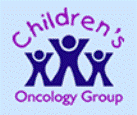Mutation in a gene can predict high likelihood of relapse in children with acute lymphoblast leukaemia
 The Children's Oncology Group (COG) study revealed that mutations in a gene called IKAROS can help predict a high likelihood of relapse in children with acute lymphoblast leukaemia (ALL).
The Children's Oncology Group (COG) study revealed that mutations in a gene called IKAROS can help predict a high likelihood of relapse in children with acute lymphoblast leukaemia (ALL).
Experts from St. Jude Children's Research Hospital, Memphis, the University of New Mexico Cancer Research and Treatment Centre, Albuquerque and the National Cancer Institute conducted the recent study.
Dr. Stephen Hunger, Chairman of the COG ALL committee said, "Great progress has been made in recent years in improving the cure rate of childhood ALL. The findings of this study help us further subdivide those patients who are unlikely to be cured, and identify patients in whom different therapies should be tested."
The researchers studied the genetic data on leukaemia cells obtained during diagnosis of 221 children with a high chance of relapse, who had been treated in an existing COG study. Researchers conducted micro arrays and DNA sequencing—technologies which allowed them to quickly and efficiently identify and analyze multiple genes simultaneously in the same cell—for their analysis. Researchers examined the DNA of the leukaemia cells at the time of diagnosis, and then determined whether any of the identified genetic changes predicted relapse.